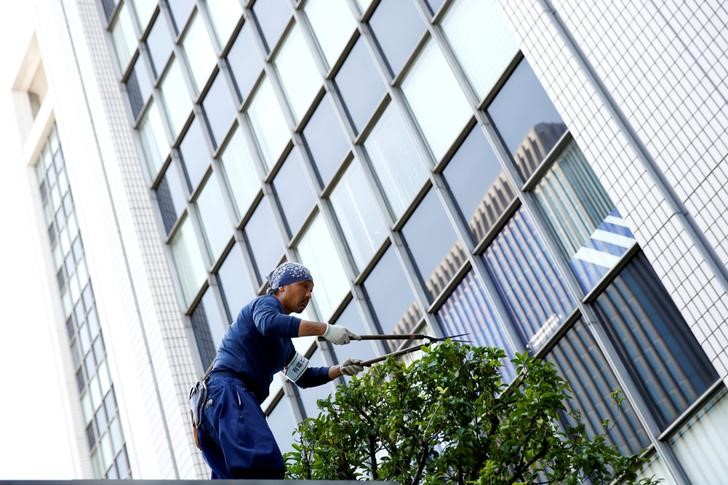Abe, business lobby have called for three per cent wage rise this year

TOKYO (Reuters) — More than half of Japan's companies do not plan to raise base pay in annual wage talks in coming months, a setback for the prime minister and the country's main business lobby which has called for wage rises of three per cent to fuel an economic revival.
In a monthly Reuters Corporate Survey, just less than half said they would raise pay and most in this group said the increase would be similar to last year's level of about two per cent.
Prime Minister Shinzo Abe and the Keidanren business group have sought a three per cent wage rise to encourage consumption and inflation, key elements of Abe's bid to vanquish the country of years of deflation.
A rise in fourth-quarter GDP reported last week marked Japan's longest continuous economic expansion since the 1980s but significant wage rises remain elusive even though the labour market is its tightest in about four decades.
In the past four years, major companies agreed to raise wages about two per cent at annual wage negotiations with labour unions, a benchmark that sets the tone for talks across the country.
The bulk of that — about 1.8 per cent — comes automatically under Japan's seniority-based employment system. Anything beyond that is a hike in "base pay."
But many firms are wary of raising wages as it commits them to higher fixed personnel costs, so they prefer to pay one-off bonuses instead.
The survey was conducted between Jan 31 and Feb 14 on behalf of Reuters by Nikkei Research. Of some 240 companies that responded, 52 per cent said they would not raise base pay.
"It would leave a burden when the business environment turns for the worse," wrote a manager at a transport equipment maker in the survey.
The remaining 48 per cent said they intended to raise base pay, but 76 per cent of this group said the rise would be the same as last year. About 14 per cent saw pay rises exceeding last year, while 10 per cent said they would undershoot last year's increase.
The firms intending to boost wages cited returning a portion of profits to employees and motivating workers. Some even cited government pressure.
"We have no choice but to raise base pay because of policies by the government and Keidanren," wrote a manager of another transport equipment firm.
VIRTUALLY FROZEN
In Japan, base salary accounts for the bulk of monthly wages. Rises in base pay had been virtually frozen since the early 2000s amid persistent deflation.
Several economists have forecast major companies would agree this year to base pay increases of around 0.5-0.6 per cent, which with the seniority-based automatic salary rise would bring overall wage growth to around 2.3-2.4 per cent.
"Keidanren set an unusually high target of three per cent for wage hikes and the government has expanded tax incentives for companies raising wages," said Yuichiro Nagai, economist at Barclays Securities, which forecast a wage hike of 2.3 per cent.
Still, 52 percent of respondents said the three per cent target was unrealistic and seven per cent said it was "out of the question." Some 41 per cent said it was realistic.
Asked the same question in the December poll, 31 per cent said it was realistic, 61 per cent said it was unrealistic while seven per cent called it "out of question."




